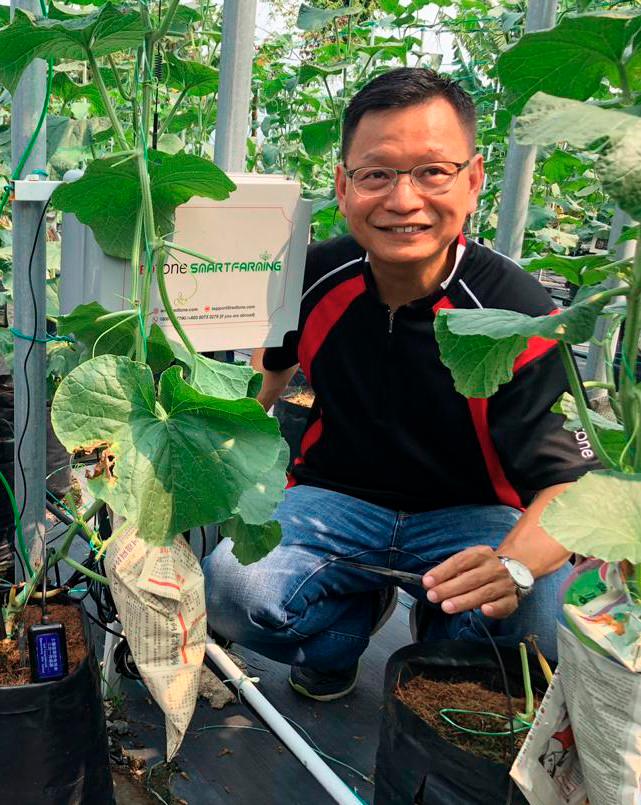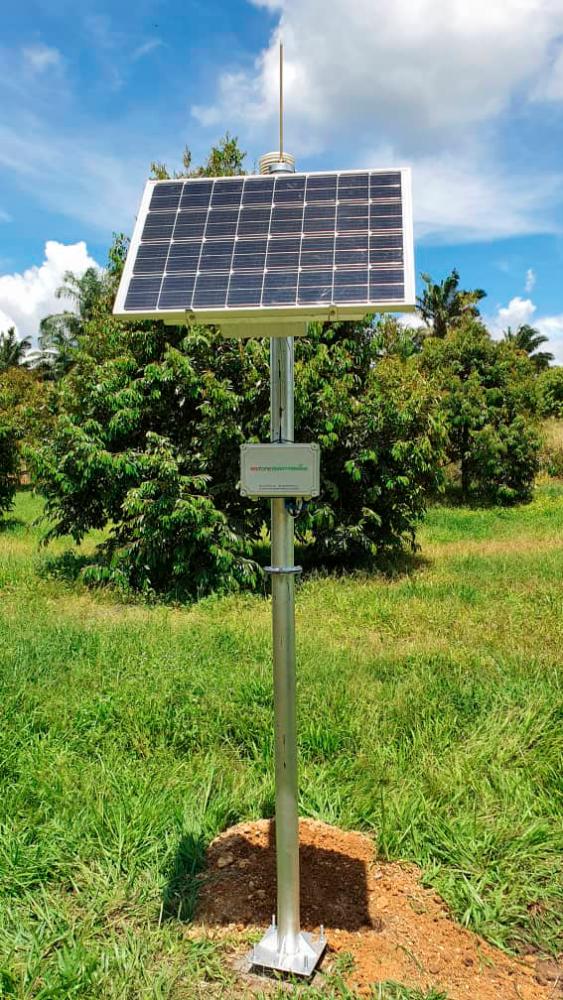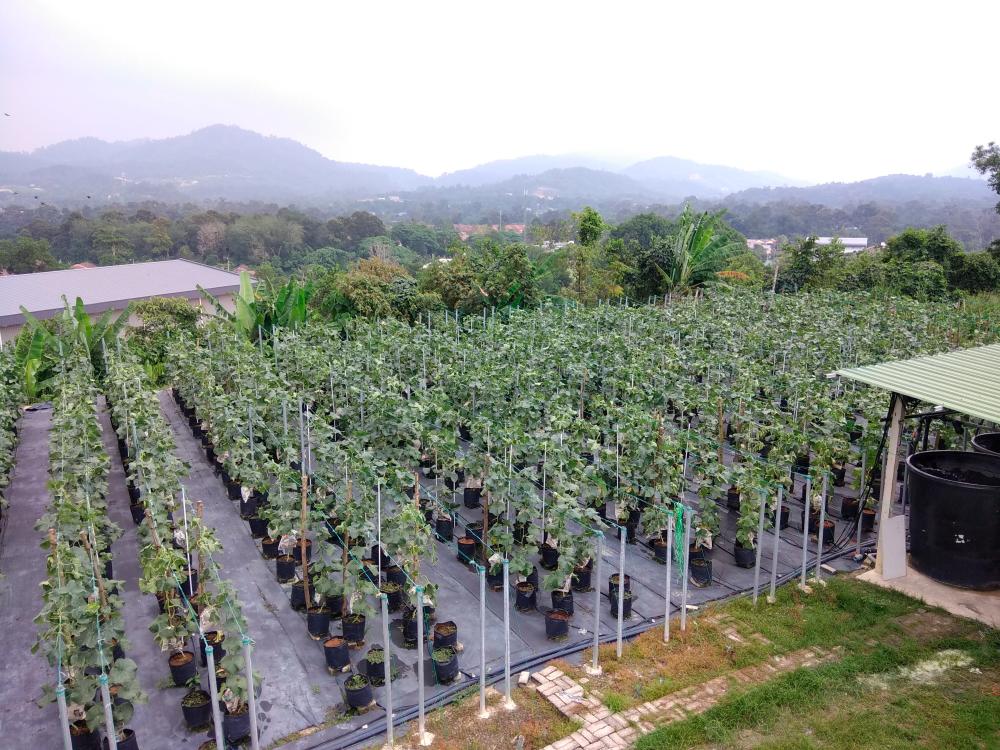ACCORDING to the United Nations, the world’s population is projected to reach eight billion on November 15, this year. What this means is that up to 811 million people or about 10% of the world’s population will go to bed hungry this year, according to World Vision International.
Together with the ongoing Covid-19 pandemic which imposed lockdowns in various countries and disruptions to international logistics, food security has been affected to the point that it is now top-of-mind for global leaders.
Malaysia has not been spared either as food security is a hot topic in the country, propelled by food shortages and rising prices of daily necessities and essentials.
However, all is not lost as the National Food Security Policy Action Plan 2021-2025 calls for the strengthening of national food security.
The plan also takes stock of issues and challenges prompted by the food supply chain that covers five core strategies, 15 strategies and 96 initiatives to sustain the country’s food supply at all times, especially in the face of unexpected situations.
The strategies serve to ensure food accessibility and affordability in the market, improve domestic food production, reduce dependence on food imports and foreign labour, and ensure preparedness in facing any food security crises.
The action plan will focus on all the four food security dimensions, namely, availability, access, consumption, and stability and sustainability, in accordance with those outlined by the United Nations’ Food and Agriculture Organisation.
The Department of Statistics Malaysia says as of 2020, the country’s share of agriculture stood at 7.4% of the overall GDP, which is comparatively lower than neighbouring countries such as Indonesia (13.7%) and Thailand (8.6%). Nonetheless, 16% of Malaysians are involved in agriculture.
Herein lies the urgent need to improve agriculture methodologies and yields, which will lower prices and sustain national food security. However, achieving this is almost impossible today under traditional, labour-intensive farming methods which require constant monitoring, and suffers from high wastage and production inefficiencies.
Just as concerning is that 65% of smallholder farmers retire in 15 years, while the hard work required by traditional farming does not encourage the next generation to take it up. Those who leave farming for other industries rarely, if ever return to it. If this state of affairs persists, food production in the country will continue to shrink.

That said, one company stands out as being at the forefront of providing solutions to these issues. REDtone offers the Internet of Things or IoT-based smart farming technologies.
Its experience and expertise are perfectly timed as the Ministry of Agriculture and Food Industries has allocated RM4.82 billion under Budget 2022 to transform the agricultural sector into a modern and dynamic one, making Malaysia more competitive as a leading world food producer.
The applications REDtone concentrates on are Satellite IoT Solutions, Smart Irrigation, Smart Fertigation, Automated Pesticide Misting, Smart Greenhouse (including environmental controls), a Plantation Monitoring System and Durian Fruitfall Monitoring System. All of these serve to improve agriculture yields and make farming lighter through automation.
Its IoT-based smart farming, also known as precision farming, helps farmers to optimise water, fertiliser and pesticide inputs and improve crop yields, quality and productivity by monitoring various factors such as humidity, temperature, soil conditions and fertiliser and pesticide levels on their farms or agricultural fields in real-time with the help of sensors and interconnectivity, according to REDtone Group CEO, Lau Bik Soon.
He said: Increasing control over production leads to better cost management, waste reduction, and boosts efficiency.
Lau pointed to the case of a greenhouse farmer who has reduced the application of pesticides for the leafy greens he grows from three times a week to just once weekly.
“The farm has also managed to reduce water usage by half. And crop damage has been reduced from 15% to 3%. So, the benefits are twofold — reduced costs and increased yields,” he says.
In the case of another customer who runs a chilli farm, costs have fallen 15% per acre while yields have risen 15% to 20%.

For now, Malaysia only produces 71% of rice, fruits (66%), vegetables (40%) and ruminants (29%) of what we require annually.
With one million farms in the country, even if 10% adopted smart farming methods each year, it will take 10 years for the agriculture sector to be fully automated.
Hence, it’s important to start now, whereby automation will allow each farm owner to increase yields by up to 20% and reduce costs by just as much.
Food security can be guaranteed within a single decade, and better yet, the country’s dependence on food imports, which rose from RM51.4bil in 2019 to RM55.4bil in 2020 according to a Malaysian Agricultural Research and Development Institute report can be impactfully reduced.
Hence, with all its benefits, there needs to be an aggressive push to employ smart farming methods as provided by REDtone so that Malaysia can move ahead with modern technologies that ensure food security is a foregone conclusion.
Source: The Sun












